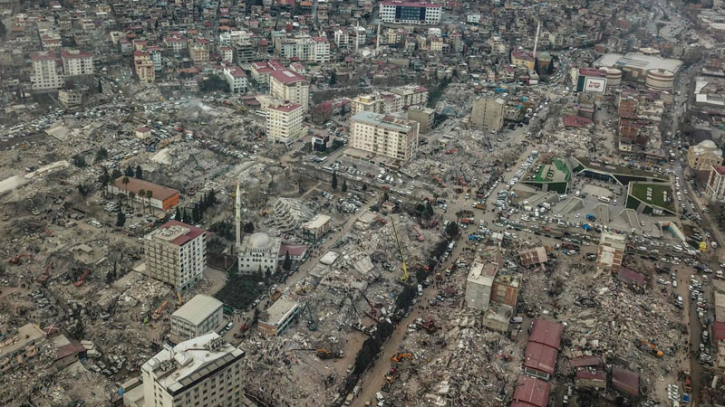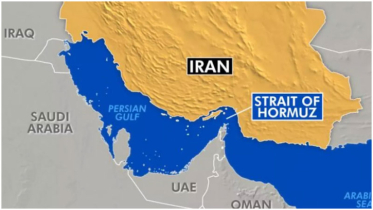Earthquake impact on Turkey's GDP unlikely to be as much as in 1999

The impact of last week’s massive earthquakes on Türkiye’s economic growth is unlikely to be as pronounced as after the quake that hit the country in 1999, International Monetary Fund (IMF) Executive Director Mahmoud Mohieldin said Sunday, Daily Sabah reports.
A pair of earthquakes devastated southeastern Türkiye and severely hit northern Syria, leaving a trail of destruction across the region. Thousands of buildings, including homes and hospitals, were flattened in the 10 provinces affected by the tremors last Monday.
The disaster inflicted heavy damage on roads, pipelines, and other infrastructure in the area, where some 13.5 million people live.
The earthquakes will add billions of dollars of spending to Ankara’s budget and are expected to cut economic growth by upto 2 percentage points in 2023, officials and economists have said.
While officials say the extent of the destruction is not yet clear, they believe rebuilding will stretch Türkiye’s budget. President Recep Tayyip Erdoğan has said there would be a rapid reconstruction of infrastructure and houses.
After the initial impact over the next few months, public and private sector investments in rebuilding could boost gross domestic product (GDP) growth in the future, IMF’s Mohieldin told reporters on the sidelines of the Arab Fiscal Forum on Sunday.
His remarks were echoed by Wolfango Piccoli, managing director of consultancy Teneo Intelligence, who last week said the earthquake is unlikely to inflict severe damage to the economy compared to one of similar magnitude in 1999 that struck Türkiye’s northwest industrial heartland.
Addressing the same event, IMF Managing Director Kristalina Georgieva said the earthquakes “brought tremendous tragedy on people but also a very significant impact on the Turkish economy.”
Türkiye has been coping with soaring inflation and depreciation in the Turkish lira. As a result, the government has endorsed a new economic model aimed at eventually shifting from chronic deficits to a current account surplus.
It also aims at lowering inflation, which dropped to nearly 58 per cent in January, through more robust exports, production, investment and low-interest rates. Inflation had hit as high as 85.5 per cent in October, a 24-year high.
Last year, the country’s slashed its benchmark policy rate by five percentage points to 9 per cent, citing the signs of economic slowdown. However, it held the rates steady last month and will hold its next meeting on Feb. 23.
Türkiye is known for having much lower debt levels than most countries. However, earthquake damage is also expected to hit production in the affected region, which is estimated to account for 9.3 per cent of the country’s GDP.
The disruption could hit economic growth this year. Three economists calculated GDP growth could drop 0.6 to 2 percentage points under a scenario where production in the region drops 50 per cent, which they said would take six to 12 months to recover.
Separately, a senior official told Reuters last week that growth could be 1 or 2 percentage points below the targeted 5 per cent, saying that some of the investment resources foreseen in the budget will need to be used for these areas.
The southeast region hit by the earthquake accounts for 8.5 per cent of Türkiye’s exports and 6.7 per cent of imports. But economists say the quakes are unlikely to affect Türkiye’s trade balance as exports and imports are expected to drop.
.png)




